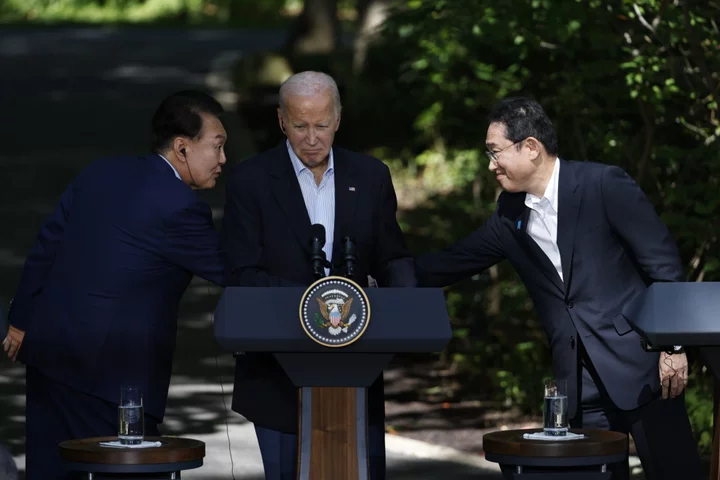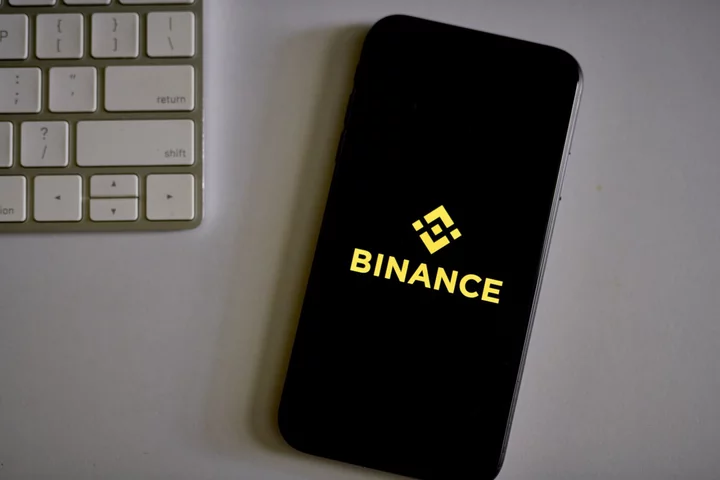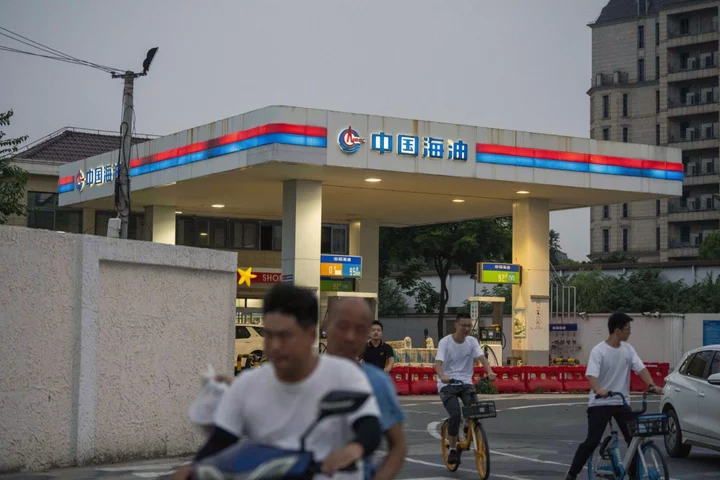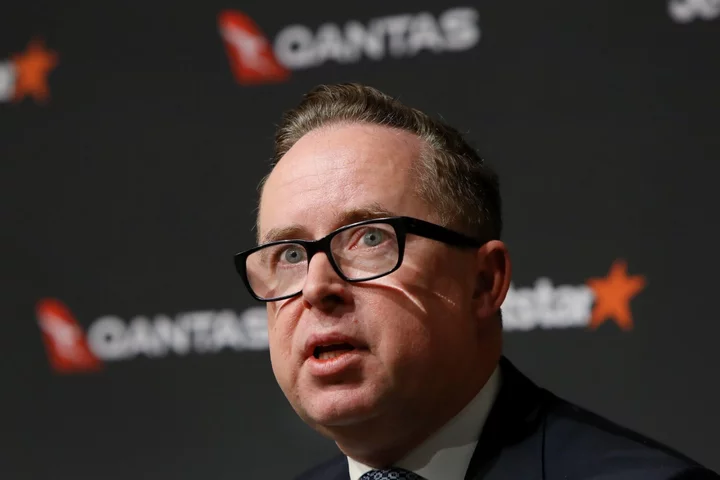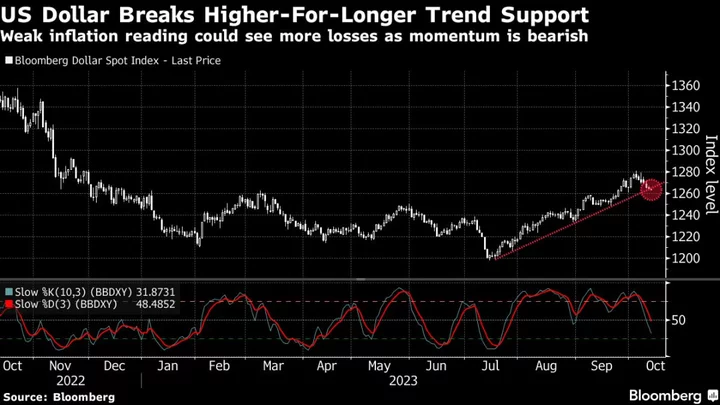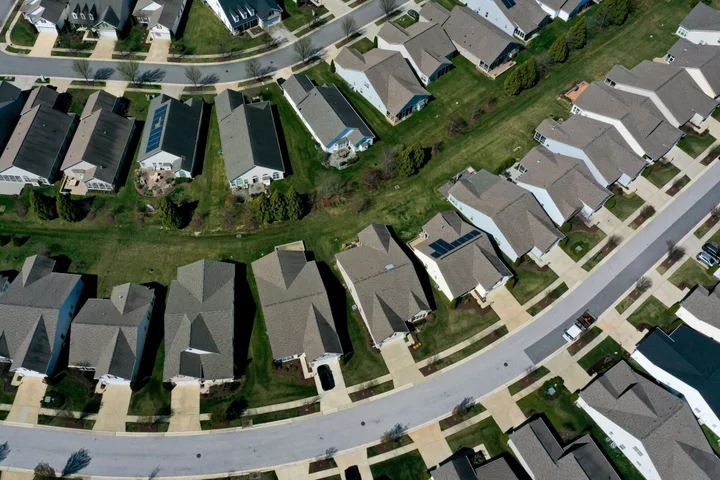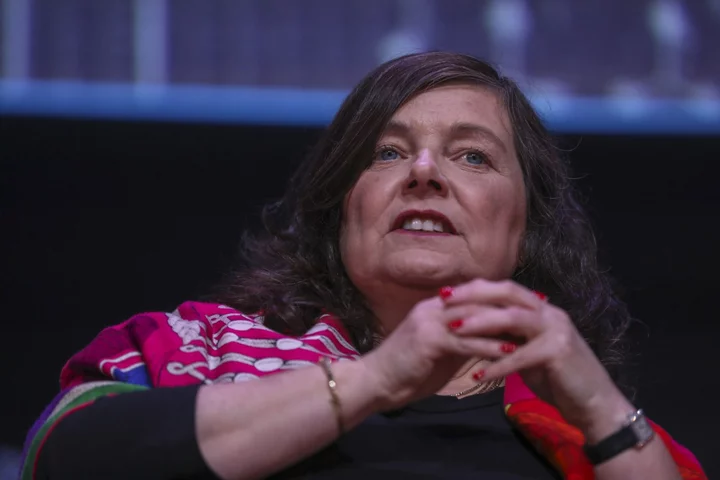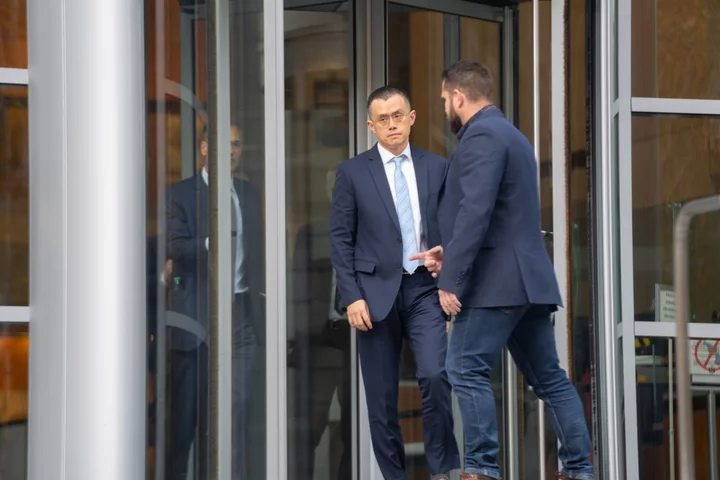US President Joe Biden was dealt a stronger hand in Asia when Yoon Suk Yeol became South Korea’s president a year ago, backing hawkish security policies that brought Seoul closer to Tokyo while looking to diminish bickering between the neighbors.
Biden capitalized on those changes at a landmark summit with Yoon and Japanese Prime Minister Fumio Kishida on Friday at the Camp David presidential retreat. The initial pay out included practical steps to counter threats by North Korea, measures to de-risk global supply chains from exposure to China and moves to bind the trilateral relationship so tightly that it would be hard to unravel.
All three leaders were looking for political wins to boost their political fortunes at home. Yoon’s conservative party is trying to retake control of parliament in an April election; Kishida is seeking to reverse a slide in his popularity, which is now hovering around some of its lowest levels since he took office, while Biden is facing heat from Republican presidential hopefuls campaigning to oust him from the White House.
Read: Biden Hails New Security Ties With Japan, South Korea
Here are five key takeaways from the summit:
Missile Defense
The three leaders leave Camp David with plans to share real-time data on North Korea’s missile launches. They will set up a new hotline to swiftly share intelligence and launch multi-domain military exercises. Getting on the same page as quickly as possible is essential given that a ballistic missile launched from North Korea could reach all of South Korea in a few minutes and most of Japan in less than 15 minutes. Under Yoon, Japan has joined South Korea when US aircraft carrier groups have been off the peninsula in joint training to shoot down missiles and hunt for submarines. By making the process more formal, the three nations can better coordinate how they would respond to a crisis.
Read: North Korea’s New ICBM Raises Ability To Strike US With Nuke
Riling China
The three leaders signed a “Commitment to Consult” to coordinate responses to “regional challenges, provocations, and threats affecting our collective interests and security.” This is far from a pact to defend each other in the event of an attack, but it is almost certain to rile China.
Beijing has accused the US of looking to set up an alliance in Asia similar to the North Atlantic Treaty Organization. Prior to the summit, its state-run Global Times cited Chinese experts as accusing the three of forming a “mini-NATO” structure that would be destructive to regional security. Its Foreign Ministry will likely have some harsh words at a regular briefing Monday, but whether there will be any economic blowback to Japan and South Korea — which both list Beijing as their top trade partner — remains to be seen.
While voters in South Korea and Japan would likely be against a treaty that calls for mutual defense, the two countries are bound together by the tens of thousands of American military personnel deployed in both nations, which each have security alliances with the US.
Economic Security
The agreement to launch a pilot program on early warning systems for supply chain shortages will help in de-risking exposure to China. This may be a good compromise considering South Korea has been a little more hesitant than Japan to jump on board with Biden administration trade curbs, aimed at preventing China’s progression in a range of cutting-edge technologies. South Korea’s major semiconductor makers Samsung Electronics Co. and SK Hynix Inc. both depend on China as a key market and a manufacturing site for their memory chips.
Read: US-China Barbs Sharpen as Growth Realities Diverge: Supply Lines
Nuclear Assets
Biden assured Yoon and Kishida the US nuclear umbrella is firmly in place, reaffirming American pledges of what is known as extended deterrence — a force strong enough that it convinces an adversary it can’t achieve its military and political goals through aggression. Yoon and Biden agreed at a summit in April that extended deterrence should lead to more deployments to the region of US aircraft groups and submarines capable of firing ballistic missiles. While Pyongyang has bristled at the moves, the conspicuous displays of US military might near South Korea are set to continue. The Japanese public is far more apprehensive about such moves due to the US nuclear attacks on Hiroshima and Nagasaki at the end of World War II.
Read: South Korea Leader Seeks Breakthrough in Deterring Kim Jong Un
Keep it Going
The commitment to make the summit an annual event is likely reassure all three sides the various pledges will remain in place. Whether that indeed happens is another matter. Former US President Donald Trump has vowed to undo many of Biden’s policies if he is returns to the White House. Trump’s administration scaled back joint military training with South Korea to help his unprecedented talks with North Korean leader Kim Jong Un, which resulted in no concrete steps to reduce Pyongyang’s atomic arsenal. And while Kishida’s Liberal Democratic Party has ruled Japan for almost all of its postwar period, South Korea’s presidency has swung between conservatives and progressives, with each camp at times trying to take on Tokyo to score political points at home.
--With assistance from Hooyeon Kim, Erica Yokoyama, Sangmi Cha, Isabel Reynolds, Jordan Fabian and Akayla Gardner.

